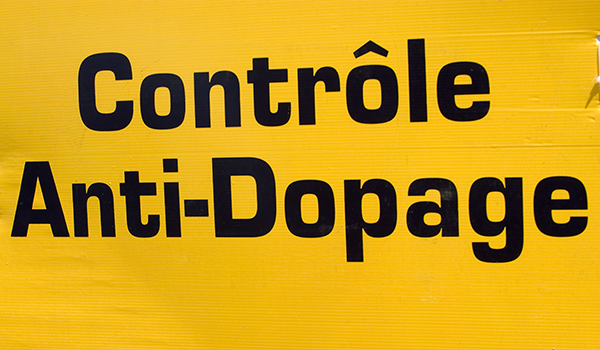By Gianni Merlo, AIPS President

LAUSANNE, March 17, 2016 – Let’s face it – doping has sadly become the main issue facing sport. Almost every day we are bombarded by news of doping scandals at all levels. Athletes, federations, and clubs are under constant scrutiny and it’s becoming more and more difficult for the media to enjoy doing our work.
Fighting the dopers is not cheap. WADA president Sir Craig Reedy yesterday appealed for donations and suggested that broadcasters and sponsors put their hands in their pockets to “help fund clean sport”.
We were shocked by Maria Sharapova’s recent admission that she used the banned medication Meldonium. No doubt sales of this drug will increase as the so-called amateurs become more and more fascinated by its properties – just as when Ben Johnson was caught for the use of Stanazolol in 1988 there was an incredible spike in sales of the synthetic anabolic steroid.
In an ironic twist the pharmaceutical companies are the ones who benefit when a top champion is caught doping. It’s the “best” kind of advertising.
Scientists are not only pushing the boundaries to find cures for disease, they are also focussing on increasing stamina.
Most recently in Nature Magazine I read with both fascination and skepticism about how ‘Brain doping’ may improve athletes’ performance.
“Working with Halo Neuroscience in San Francisco, California, the sports group (US Ski and Snowboard Association, USSA) is testing whether stimulating the brain with electricity can improve the performance of ski jumpers by making it easier for them to hone their skills. Other research suggests that targeted brain stimulation can reduce an athlete’s ability to perceive fatigue. Such technologies could aid recovery from injury or let athletes try ‘brain doping’ to gain a competitive advantage.
“The USSA is working with Halo to judge the efficacy of a device that delivers electricity to the motor cortex, an area of the brain that controls physical skills. The company claims that the stimulation helps the brain to build new connections as it learns a skill. It tested its device in an unpublished study of seven elite Nordic ski jumpers, including Olympic athletes.”
Should we be scared or it this normal? I would like to know your opinion because we cannot be complacent; we must find the right way for the future of sport.
These are the two interesting links from Nature.com:
http://www.nature.com/news/brain-doping-may-improve-athletes-performance-1.19534
http://www.nature.com/news/brain-stimulation-in-children-spurs-hope-and-concern-1.18405




